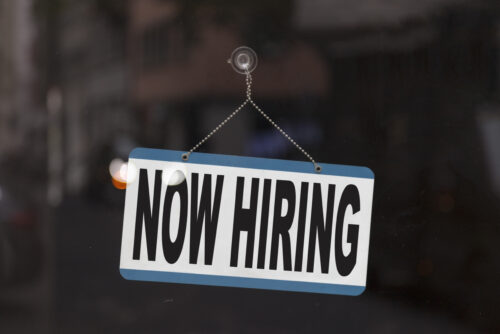Personality testing can help your hiring process, but it can also obscure your decision.
Who knew this question could be so contentious?
It turns out it is. The idea of pigeonholing someone professionally for being introverted or more analytical sounds absurd. But is also begs the question to whether our job satisfaction and success partially depends upon doing work that is more in line with our personality.
Employees are persons and not just “brains.” If we want to make a wise and humane hiring decision, we need to take into account not just an applicant’s intellectual strengths and weaknesses, but her entire person.
We must consider personality when hiring—but we must consider personality in the right ways.
PERSONALITY THEORIES
Personality theory can be traced back to the ancient Greeks when Hippocrates explained physiological reasons for different behaviors in people. Human moods, emotions, and behaviors were caused by an excess or lack of bodily fluids (or humors) and the balance of hot/cold and dry/wet elements from the earth. Eventually, four key temperaments were developed, and each tied to a balance of these fluids and elements: sanguine, choleric, melancholic, and phlegmatic. Later work has been done on strengths and potential weakness of each temperament with direction on how to overcome them.
Jump ahead a couple thousand years, and Freud hypothesized a theory of human behavior and Carl Jung described “universal types” in human personality—introversion/extroversion, sensing/intuition, thinking/feeling, and judging/perceiving—that resulted in 16 personality types each with different cognitive functions that impact how your inner world interacts with the exterior world. This Myers-Briggs Type Indicator (MBTI) has strong reliability and validity as an assessment tool, but it is descriptive, not predictive of human behavior.
Again, research in the mid-20th century started by D.W. Fiske and developed into the early 1990s led to the Big Five Personality Traits: openness, conscientiousness, extroversion, agreeableness, and neuroticism. Like MBTI, the traits are on a continuum and they are descriptive. By far, the most popular personality assessment used for hiring decisions is DiSC, which measures tendencies and preferences. Dominance (direct, strong-willed), influence (sociable), steadiness (accommodating), and conscientiousness (analytical, logical) are four reference points to map behavior. DiSC has been adapted to leadership coaching, team development, and beyond. While many companies promise to predict job performance, it is important to understand that none of these assessments say they measure job performance.
These personality tests are helpful frameworks that have stood the test of time in conceptualizing coherently the complexities of the human person’s motivations, behaviors, and moods. They are helpful, but they are not magical.
CONFLATING PERSONALITY WITH VIRTUE
Oftentimes, hiring executives will conflate personality with virtue. If they have the right personality traits for the position, they will be successful. Personality assessments do not measure intelligence, aptitude, values, emotional intelligence, or virtue.
We know being a good person isn’t enough to do a job successfully, but it often helps. You might not be a naturally conscientious person or super open to new ideas, but if your job demands it of you, chances are you are willing to exert (however painful) the effort needed to figure it out. Possessing virtues such as prudence, justice, fortitude, and temperance will almost always result in adding value to an organization.
Modern business lingo encourages leaning into conflict and being vulnerable by sharing unpopular opinions for the sake of identifying the best path forward, but that presumes prudence and fortitude.
The misconception is that someone with a more aggressive personality is a better leader because they are willing to take initiative and wrestle with uncomfortable conversations, but that loses sight of the fact that a person, who might shy away from conflict because of their personality, might be more virtuous and willing to take risks to lead effectively.
It isn’t that some personalities aren’t likely better suited for leadership (we know introverts often make powerful leaders), but that isn’t enough, and shouldn’t be conflated with virtue or other strengths. You’re hiring the person, not just a set of skills. Again, personality can’t predict or measure performance. It can’t tell you what field you should be working in, it can’t find your perfect spouse.
In order to mitigate risk, it is tempting to measure the person with regard to their extroversion, motivations, and behaviors. But that’s not enough. Personality considerations can be extremely helpful when hiring, but they are not sufficient on their own.
HOW TO CONSIDER PERSONALITY WHEN HIRING
Say you’re hiring for a fundraising position and the person sitting in front of you keeps talking about the importance of data and reflects an introverted disposition. The candidate demonstrates a quiet passion discussing how data drives fundraising goals. Chances are you aren’t going to be benefiting from having this person traveling 70% of the time to meet with donors. This candidate could be good at making asks—but that’s not where they shine or likely want to be. You know that they probably know that, too.
Here is how I use personality assessments:
- I want to know if they will work well with their direct supervisor, fit into the general organizational culture, and be motivated by the systems in place. Personality does make sense of motivations, behaviors, and communication habits. Any reason to believe this person and organization won’t be a good fit for another? Personality assessments help me determine how it would work, identify areas that might be rough, and set clear expectations in the discernment of both parties.
- To confirm my assessment during the interview or to better contextualize answers. I always ask myself, is the person I interviewed the person that jumps off the assessment? Sometimes, there can appear to be a lack of congruency or seemingly contradictory responses. If I can understand better that this person has different personality traits that sometimes compete for space, I can better understand where the person is coming from and make those helpful nuances.
- To better communicate with the candidate in a way that works for them, and to set up the best possible system for their onboarding and how to effectively utilize incentives and opportunities for growth.
- To catch any red flags—if someone is spending too much time on a personality assessment, results will show that, and highlight important considerations.
It can be tempting to hire someone like yourself, and personality assessments can shed light on the important personality differences that add value to how we see and experience ourselves and the world.
Personalities can change over time, but usually not radically. Everyone takes personality into consideration to some degree when hiring, even if unwittingly. However, it should be done intentionally and carefully, and it ought not be done to predict success, but rather to shed light on the characteristics of the person and how that person would work well (or not) with the company culture and the position’s responsibilities.






